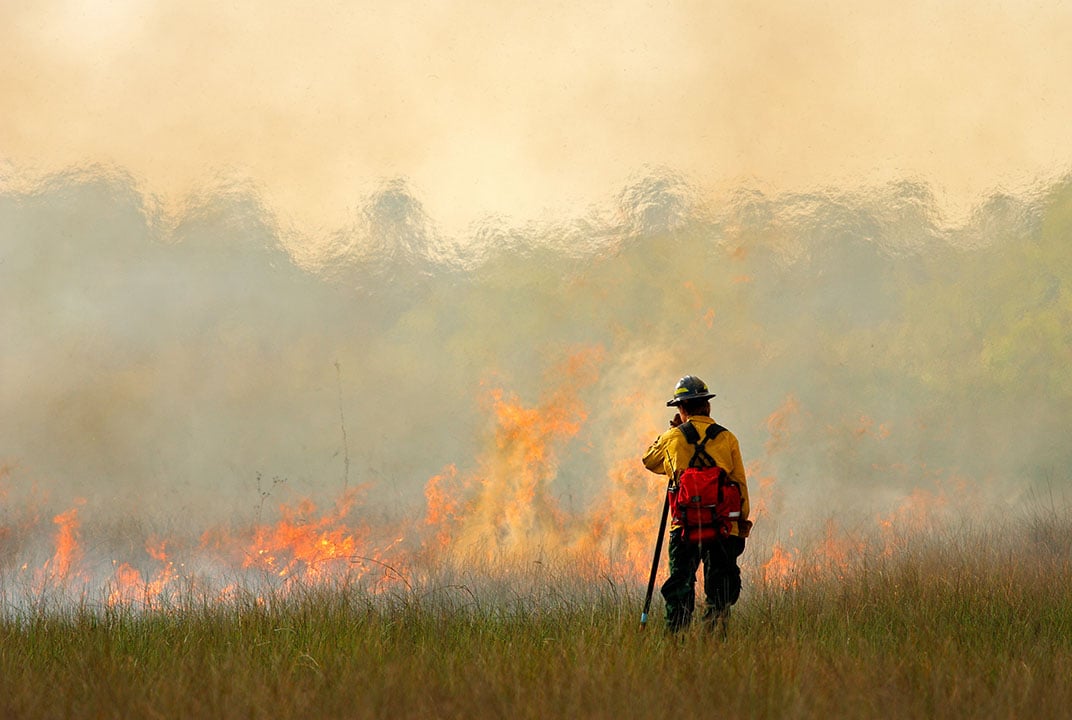Insight | Our commitment to the humanitarian community
Our commitment to the humanitarian community
In times of disaster one of the first things you reach for is your phone to let your family and friends know you are ok; that you are safe. When disaster strikes an entire country or region, being able to depend upon reliable, seamless communications to coordinate the work of first responders is critical too. But what happens if terrestrial networks are damaged or destroyed? This is where satellite communications (satcoms) steps in.
Satcoms have always played a vital role in disaster relief. From Inmarsat’s inception in 1979 by the United Nations to provide safety communications for mariners at sea, we have continued our commitment to saving lives for nearly four decades; forging strong links with government emergency planning teams and the humanitarian sector to help mobilise global satellite communications to aid disaster relief.
Two years ago, we were one of a number of world-leading satellite operators to sign an agreement at the World Humanitarian Summit Global Consultation in Geneva to reinforce our vow to enhance connectivity in humanitarian emergencies. Today, I am pleased to welcome the next operational phase of the Crisis Connectivity Charter, which will see the satellite industry commit dedicated equipment and pre-allocated bandwidth capacity for humanitarian purposes that can be activated within 24 hours of an ensuing crisis and cover all regions of the globe.
Increasingly we rely on and expect ubiquitous connectivity wherever we are, and for whatever we do, however, it is this reliance that can make us vulnerable too. During and after catastrophic events, local terrestrial infrastructure and mobile phone networks are often overloaded, damaged or non-existent. Without access to connectivity, first responders’ ability to save lives and restore services is hampered, which is why it is important that we galvanise resources within the satellite industry to support global disaster relief to the best of our ability.
Our 18 year-strong relationship with United Nations-backed Télécoms Sans Frontières (TSF), is a testament to the vital importance of satcoms. As the first official partner to the NGO emergency telecommunications agency in 2000, we have provided airtime and financial aid to support its work in the aftermath of some of the most devastating disasters and conflicts in over 70 countries.
Our rapidly deployable and reliable satcoms not only put people in touch with one another, they also improve emergency response and help coordinate healthcare and the distribution of life-saving supplies. From the devastation wreaked by Typhoon Hagupit in the Philippines in 2014 to the catastrophic impact of two category five hurricanes in the Caribbean last year, TSF was on the ground within days setting up critical communication networks for humanitarian response – thanks to our satcoms TSF was able to provide a communications lifeline to over 1,000 residents of Dominica alone in the wake of Hurricane Maria.
More recently I spearheaded Inmarsat’s support of Team Rubicon, a charity that unites the skills and experiences of military veterans to rapidly deploy emergency response teams when disaster strikes and for longer-term reconstruction projects rebuilding communities and the lives of those affected. Not only are we providing satcom services to keep the teams safe and in touch with command operations when in the field, I am also immensely proud of the achievements of my colleagues who have offered their personal support through Inmarsat’s volunteering scheme, signing up as Greyshirts to help deliver humanitarian relief wherever it is needed.
Add to this the work we are doing with the Philippines government and TSF under the UK Space Agency International Partnership Programme using our satellite connectivity to transform disaster response in the country, and it is evident to see how satellite networks provide critical assets for the humanitarian community in the event of a worst-case scenario.
Today’s signing of contribution agreements in Luxembourg by members of the satellite community with the United Nations World Food Programme (WFP), on behalf of the Emergency Telecommunications Cluster (ETC), marks the start of an industry standard for disaster response on a global scale that Inmarsat is honoured to be part of.
About the author
As President of Inmarsat Enterprise, Paul Gudonis is responsible for all Inmarsat business in Energy, Mining, Agritech, Aid & Development, Media and Integrated Transport Systems.
Paul joined Inmarsat in 2007 after 10 years in the British Army. Initially taking up a position within the Government team focused on Business Development, over the next four years Paul managed a growing number of partners across land, sea and air verticals (government and commercial) before eventually taking on the management of the Key Partners Team. In 2011, Paul moved into a sales management position within the Maritime Business Unit and in 2014 he moved into the Enterprise Business Unit to run the Channel Sales, Solutions Engineering, Sales Operations and Sector Development teams. He took on his current role in 2016.


